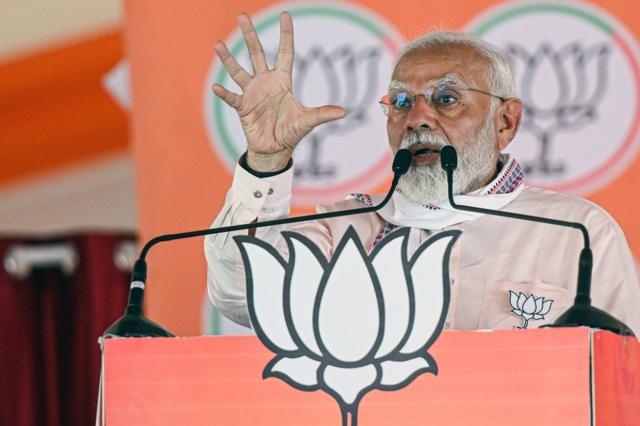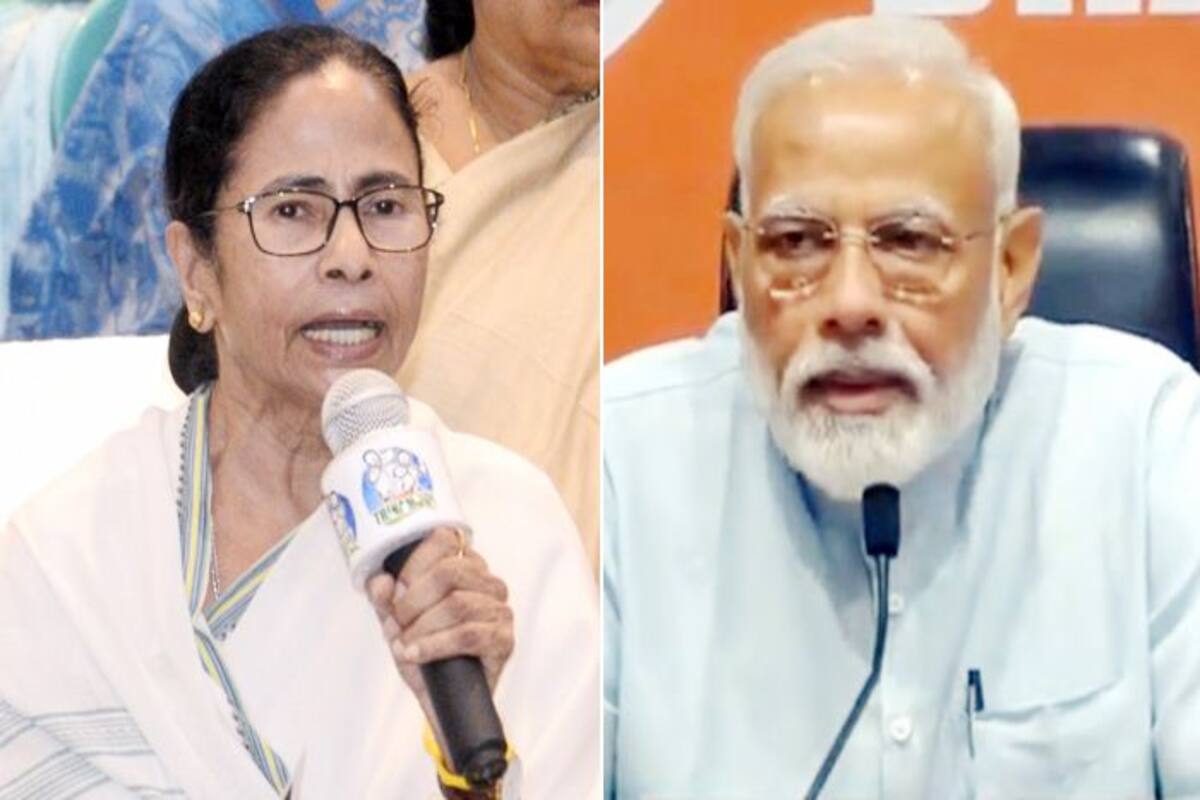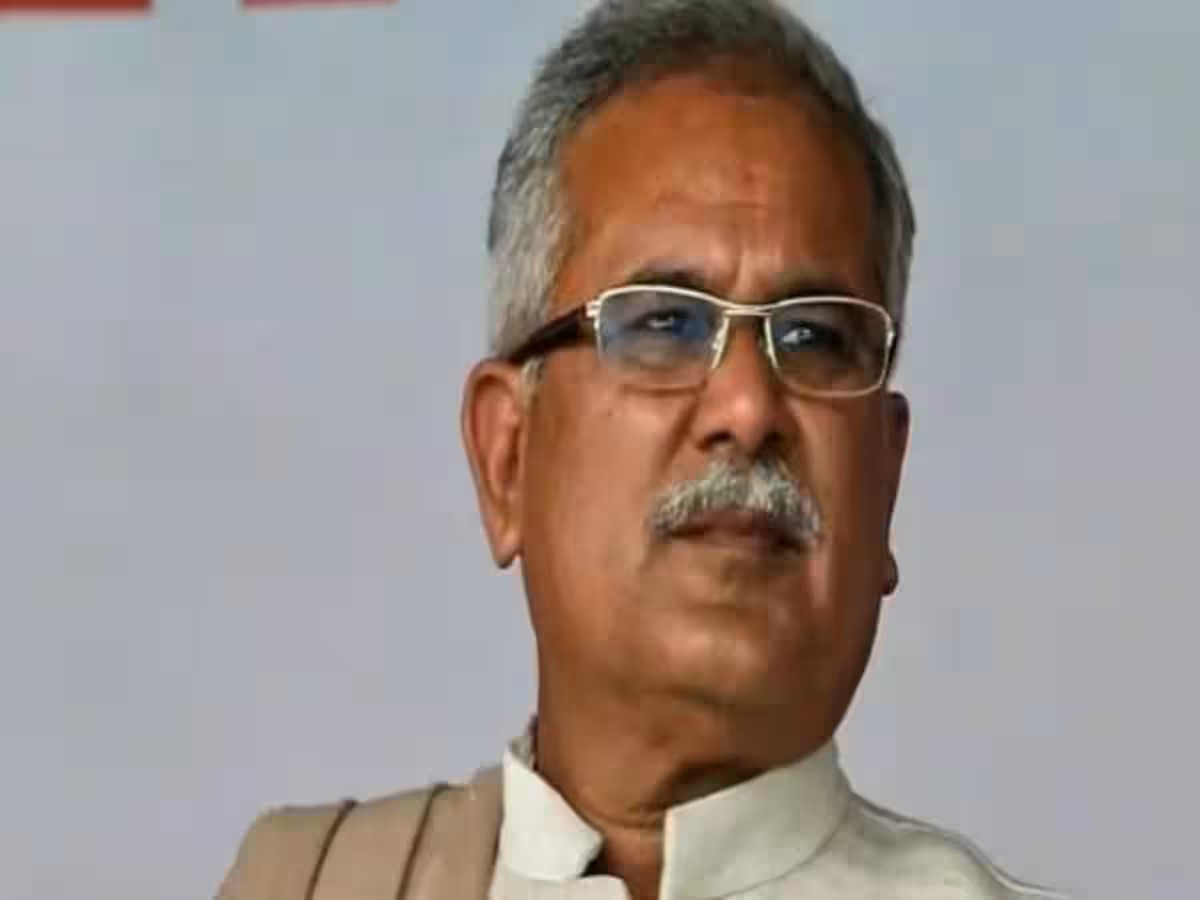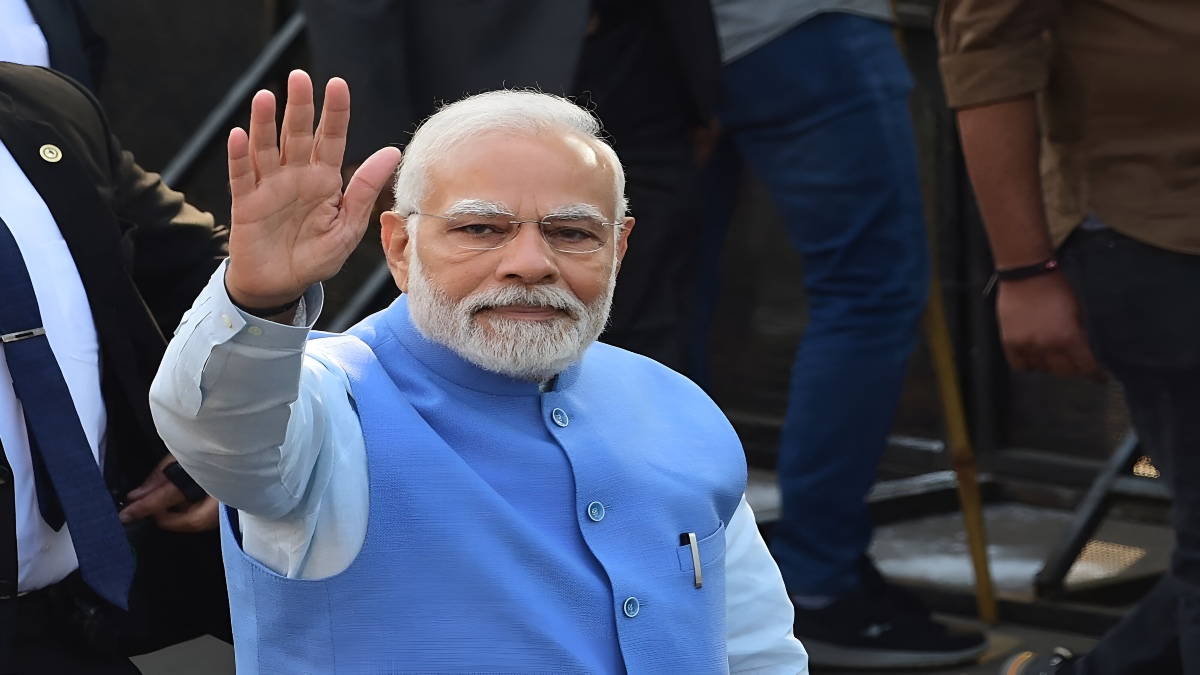As India’s general election approached, Prime Minister Narendra Modi was expected to highlight his decade-long tenure as a success, showcasing achievements such as welfare programs, space missions, and the construction of a Ram temple in Ayodhya as a cultural triumph for India’s Hindu majority. His hosting of the G20 summit in September was also anticipated to sway voters. Opinion polls have projected a potential third consecutive victory for Modi’s Bharatiya Janata Party (BJP).
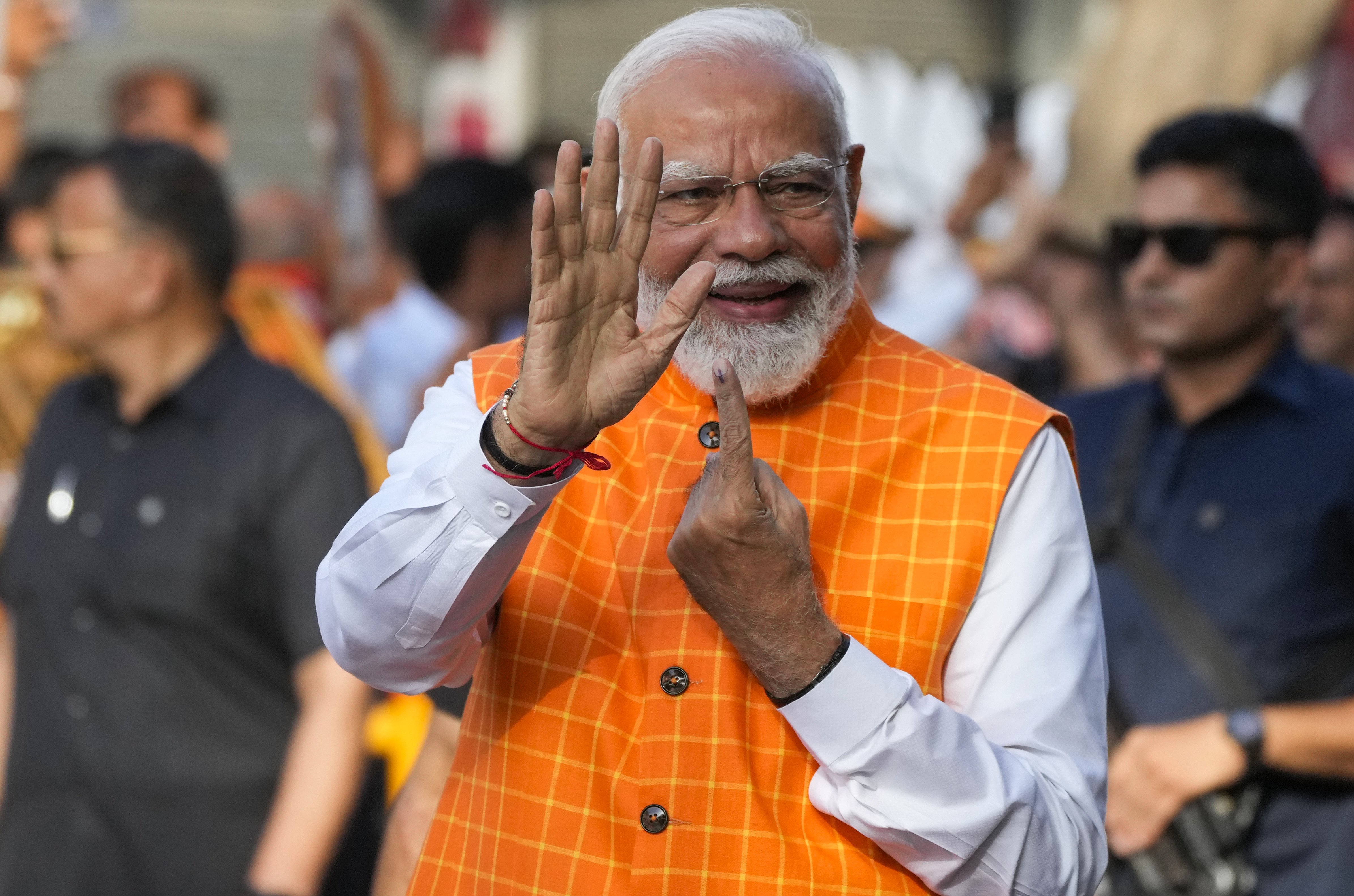
However, early in the six-week election period, Modi’s campaign shifted toward divisive rhetoric, raising concerns about his approach. He accused the opposition Congress party of appeasing the Muslim minority community and redistributing wealth to “infiltrators” and families with many children, comments widely perceived as targeting Muslims.
At rallies, Modi warned women that the Congress party would confiscate their gold and give it to Muslims, and accused the party of promoting a “vote jihad” by encouraging a specific community to unite against him. He also alleged that the Congress would select the Indian cricket team based on religion.
India’s 200 million Muslims make up 14% of the country’s population, and the opposition has criticized Modi’s rhetoric as divisive and constituting hate speech. They have called for an investigation into possible violations of the election code of conduct.
“To be honest, I thought Mr. Modi’s campaign would focus more on the rising India story and their accomplishments for the people,” said Rahul Verma of the Centre for Policy Research in Delhi.
Some observers note that Modi’s remarks align with his past campaign strategies, including his “inflammatory rhetoric” during the 2002 Gujarat riots ahead of the state’s assembly elections. Milan Vaishnav of the Carnegie Endowment for International Peace called Modi’s language “not subtle” and a form of “dog-whistling.”
The shift in campaign rhetoric may reflect the BJP’s worries over a decline in voter turnout in early phases of voting, possibly due to a lackluster election. The party’s slogan “Abki Baar, 400 par” (This time, over 400 seats) may have backfired, giving the opposition an opportunity to portray the BJP as a dominating force aiming to reshape India with a large majority.
Rahul Gandhi of the Congress party criticized Modi’s remarks, accusing him of divisive and polarizing tactics.
Political scientists suggest the BJP excels in national elections when focusing on overarching national issues, and Modi’s party aims for a substantial victory this election. However, reaching the target of 400 seats will be challenging without retaining the 303 seats won in 2019 and expanding into new areas.
Despite Modi’s divisive rhetoric, his recent interviews with news networks have struck a different tone, emphasizing inclusivity and welfare benefits for all, regardless of community or religion.
Analyzing election outcomes in India is complex, as voters often base their choices on future prospects rather than past achievements. Political analyst Gilles Verniers noted that the BJP’s past campaigns were built on welfare, security, and nationalism, but the party may now lack new ideas for voters, resulting in an increase in ethnic and religious nationalism.
While Modi and the BJP may dispute this analysis, the election remains fluid, with no clear sweeping wave favoring any side. As political analyst Pratap Bhanu Mehta observed, “In politics, never underestimate the power of boredom,” which may explain the perceived “nervousness” of the BJP.

